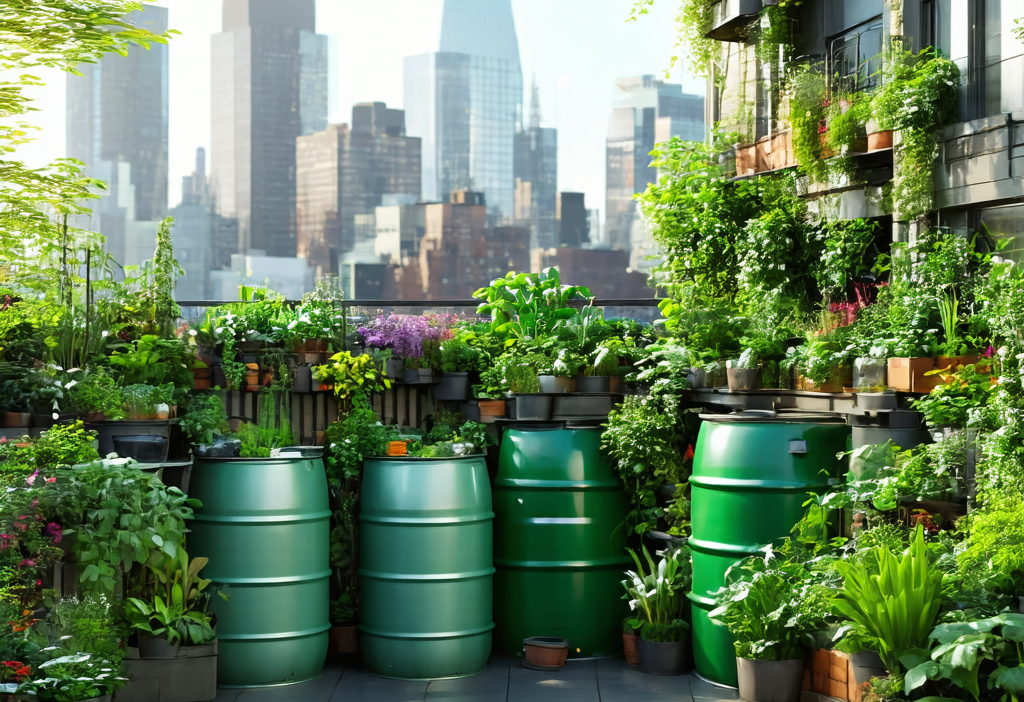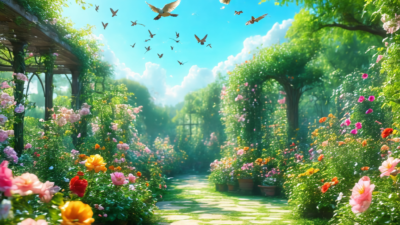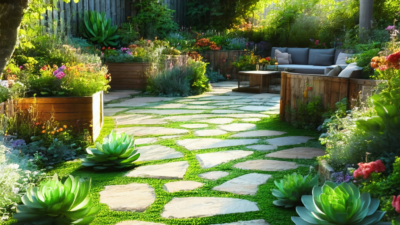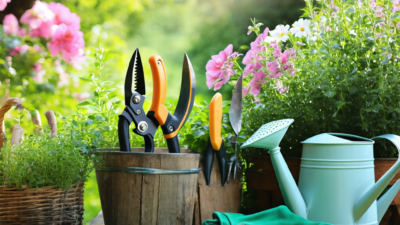Sustainable Gardening in Urban Environments: Eco-Friendly Tips for City Dwellers
Gardening doesn’t have to be confined to rural areas. In fact, urban environments are perfect for sustainable gardening practices that not only beautify the space but also contribute positively to the environment. Whether you’re living in a bustling city or a suburban neighborhood, there are plenty of ways to create an eco-friendly green space right where you are. Let’s dive into some practical tips and ideas for sustainable urban gardening.
1. Start with Composting
Composting is one of the most effective ways to recycle organic waste and improve soil quality. Instead of throwing away kitchen scraps, you can turn them into nutrient-rich compost that your plants will love. Here are some tips for successful urban composting:
- Use a small-space composter: If you have limited space, invest in a compact compost bin designed for apartments or balconies.
- Layer your materials: Alternate between green (nitrogen-rich) and brown (carbon-rich) materials to ensure proper decomposition.
- Add worms: Vermicomposting is an excellent option for small spaces. Red wiggler worms can break down food scraps quickly and efficiently.
By composting, you reduce waste and create a natural fertilizer that’s free from synthetic chemicals, making it perfect for sustainable gardening.
2. Choose Native Plants
Native plants are adapted to your local climate and soil conditions, which means they require less water, pesticides, and fertilizers compared to non-native species. Here’s how to incorporate native plants into your urban garden:
- Research local flora: Visit a nearby botanical garden or consult the EPA website for information on plants indigenous to your area.
- Create a pollinator-friendly habitat: Many native plants attract bees, butterflies, and birds, contributing to biodiversity.
- Sustainable Gardening Benefits: Using native plants reduces your garden’s environmental footprint while supporting local ecosystems.
3. Water Smartly
Water is a precious resource, especially in urban areas where demand is high. Implement these water-saving techniques to keep your garden healthy without wasting water:
- Use drip irrigation: This method delivers water directly to the roots, minimizing evaporation and runoff.
- Harvest rainwater: Install a rain barrel to collect rainwater for watering plants. It’s a sustainable way to reuse water and reduce your reliance on the municipal supply.
- Mulch your soil: Adding a layer of organic mulch retains moisture in the soil, reducing the frequency of watering needed.
4. Opt for Organic and Non-Toxic Products
Avoid using synthetic pesticides and fertilizers that can harm beneficial insects and contaminate water systems. Instead, opt for organic or homemade solutions:
- Make your own compost tea: Brew a nutrient-rich liquid from compost to feed your plants naturally.
- Use neem oil: This natural pesticide can help control common garden pests without harming the environment.
- Attract beneficial insects: Plant flowers like marigolds and calendula to attract ladybugs and other predators of garden pests.
5. Recycle and Reuse Materials
In urban gardening, space is often limited, so it’s essential to make the most of what you have. Get creative with recycling materials for your garden:
- Repurpose containers: Use old cans, plastic bottles, or even sinks as planters. Just ensure they have drainage holes.
- Build vertical gardens: If you’re short on ground space, consider vertical gardening using pallets, trellises, or hanging baskets.
- Use reclaimed wood: Salvage materials from construction sites or furniture stores to build raised beds or garden structures.
6. Support Biodiversity
Your urban garden can be a haven for wildlife, promoting biodiversity in the city. Here’s how to create a welcoming environment:
- Add bird feeders and nesting boxes: Attract birds by providing food and shelter.
- Plant flowers that bloom at different times: Ensure a continuous supply of nectar for pollinators throughout the growing season.
- Create a small pond or water feature: Even a shallow dish with water can provide a drinking source for birds and insects.
7. Educate Yourself and Others
Sustainable gardening is an ongoing learning process. Stay informed about best practices, attend workshops, and share your knowledge with neighbors:
- Join a local gardening group: Connect with other urban gardeners to exchange tips and resources.
- Visit community gardens: Observe how others are successfully implementing sustainable practices in their plots.
- Talk to your children or students: Teach the next generation about the importance of eco-friendly gardening and sustainability.
Conclusion
Sustainable urban gardening is more than just a hobby; it’s a movement towards creating greener, healthier cities. By adopting these eco-friendly practices, you can transform your small space into a thriving ecosystem that benefits both you and the environment. Remember, every little action counts, so start today and inspire others to join in! Happy gardening!





